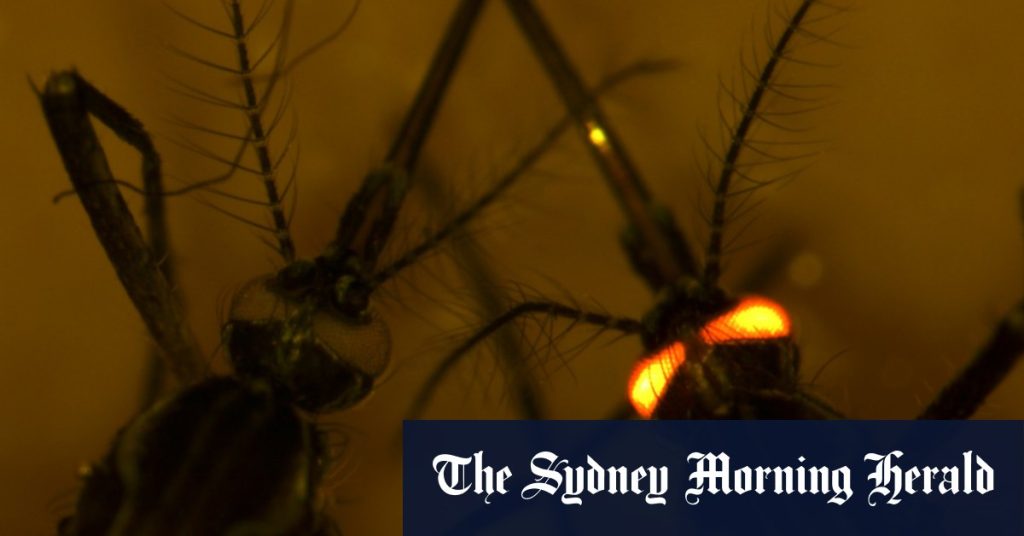Mosquito-borne diseases pose a significant threat to global health, claiming an estimated million lives annually. While the often-cited figure of mosquitoes being responsible for half of all human deaths throughout history is likely an exaggeration, their impact remains undeniable. Climate change, with its attendant extreme weather events like floods and heatwaves, is exacerbating the situation by creating ideal breeding conditions for mosquitoes, leading to a surge in outbreaks of diseases like malaria and dengue. Adding to this challenge is the growing resistance of mosquitoes to conventional insecticides, necessitating the exploration of innovative control methods. One such approach involves genetically modifying mosquitoes to suppress their populations.
Oxitec, a company originating from Oxford University, has pioneered the development of self-limiting, or “friendly,” Aedes aegypti mosquitoes. This species, originally from sub-Saharan Africa but now widespread globally due to historical trade routes, is a primary vector for dengue, yellow fever, chikungunya, and Zika virus. Oxitec’s modification involves introducing a lab-designed gene, derived from elements of DNA found in various organisms, including E. coli, fruit flies, and the herpes virus. It’s important to note that this gene doesn’t encode for these organisms themselves, but rather utilizes tiny structural sequences inspired by their DNA.
This genetic modification works by overloading the cells of female mosquito offspring with a protein called tTAV. While not inherently toxic, the overproduction of tTAV prevents the larvae from producing other essential proteins, leading to their death. Crucially, this lethal effect is limited to female mosquitoes, the sole biters and disease transmitters, as they require blood meals for egg production. The male offspring, which do not bite, survive and continue to pass on the gene, effectively reducing the overall mosquito population.
The practical application of this technology resembles the simple process of hatching sea monkeys. Oxitec produces mosquito eggs in a dedicated facility, which are then shipped in boxes to affected communities. Adding water triggers the hatching process, releasing hundreds of non-biting, genetically modified males. These males then mate with wild females, initiating the population suppression cycle within a hectare radius. Field trials in dengue-affected areas of Brazil have demonstrated remarkable success, with some towns reporting a 96% reduction in Aedes aegypti populations.
This targeted approach offers several advantages over traditional insecticide spraying, which can be indiscriminate and harmful to beneficial insects. The male mosquitoes act as precision-guided agents, seeking out and mating with wild females, leaving other insects, such as butterflies and bees, unharmed. Furthermore, predators like birds and bats that consume these mosquitoes are unaffected. Another key advantage is the self-limiting nature of the genetic modification. The gene responsible for female mortality is not indefinitely inherited, gradually diminishing with each generation, preventing the long-term establishment of the modified gene in wild populations.
However, the implementation of this technology hasn’t been without its challenges, primarily stemming from community distrust and a controversial scientific publication. A 2019 paper raised concerns about the potential for gene flow from modified mosquitoes to wild populations during a Brazilian trial, suggesting the possibility of increased resistance to insecticides or disease transmission. While these concerns were largely unfounded and the paper itself faced scientific scrutiny, the incident highlighted the importance of transparency and community engagement in such initiatives. Earlier resistance to trials in the Florida Keys further underscores the need for open communication and public education.
Despite these challenges, Oxitec continues to refine its technology, developing a second-generation mosquito that eliminates female survival entirely. The company is also working on a similar approach for the Asian tiger mosquito, another invasive species in Australia. The Torres Strait is being considered as a potential location for Australian trials, with a strong emphasis on community consultation and collaboration. Given the potential for invasive mosquito species to spread to mainland Australia, the development of effective and environmentally sensitive control methods, like Oxitec’s genetically modified mosquitoes, is of paramount importance.
The escalating threat of mosquito-borne diseases, amplified by climate change and insecticide resistance, demands innovative solutions. Oxitec’s genetically modified mosquitoes represent a promising approach, offering a targeted and self-limiting method for population control. While community engagement and addressing public concerns remain crucial, the potential benefits of this technology in mitigating the devastating impact of mosquito-borne diseases are substantial. As invasive mosquito species continue to pose a global health threat, exploring and refining such technologies is vital for safeguarding public health. The ongoing research and development in this field offer hope for a future where the burden of mosquito-borne diseases is significantly reduced.

